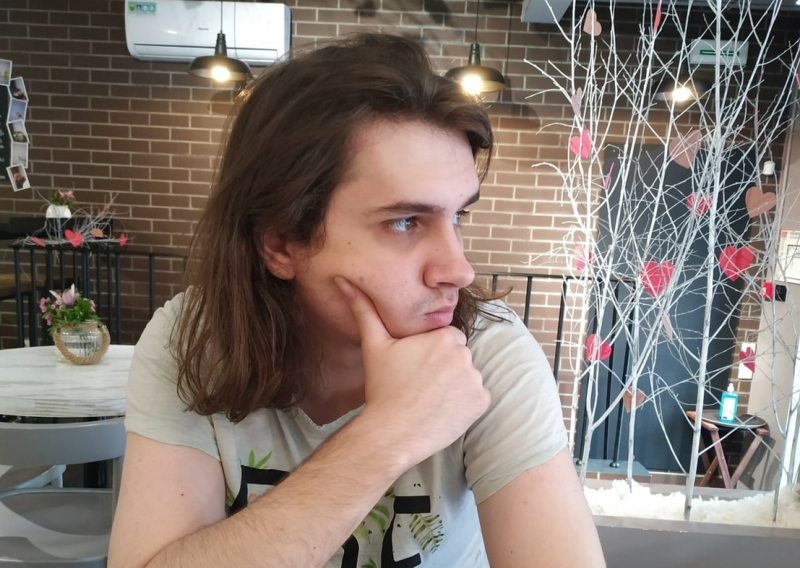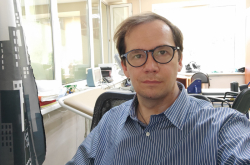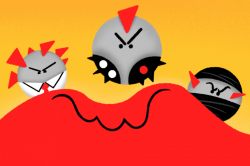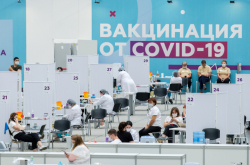How did you come up with the idea to analyze the anti-vaccination communities? Was your interest caused by the relevance of this topic?
I’m into textual and statistical analysis using computer methods: topic modeling with LDA and linear regression. Such methods demand an interesting research object. I have randomly chosen an anti-vaccination community on VK and decided to see if communities of that kind have been researched. I’ve found some studies made using my preferred methodology abroad but not in Russia.
My personal interest lies in research of digital communities and, given that anti-vaccination movement isn’t well-researched, I thought it’s a promising topic. This was way before the pandemic but even back then, the WHO named vaccine hesitancy among the ten threats to global health. It was a relevant topic as it was but when coronavirus emerged, it became a trend.
What were your initial ideas? What did you want to study?
My idea was to study the community objectively and see what they discuss and comment, and what topics are popular. At first I only had a researcher’s interest: I wanted to see how the participants interact and what narratives there are.
But then I immersed myself deeper into the theory and looked for a conceptual framework for my research; I had to figure out how to study this object properly.
Massimiano Bucchi distinguishes three models of scientific communication.
The first is the information deficit model. The scientific community shares some research results with the public but the public doesn’t participate in scientific and technological policies and doesn’t have the means to somehow influence them.
The second approach is called the dialog model. This means that people have the opportunity to discuss some of the scientific and technological questions.
The third one is participation. In this case, people have the opportunity to influence the decisions that are being made. For example, they can choose which vaccines are essential and which aren’t. In this instance, you can see the disadvantages of such a model: we believe it’s absurd to let the general public make such decisions.
However, I thought it was important to approach the anti-vaccination community using the dialog model to see how to interact with its members. As long as we don’t research these communities empirically, we can only assume what’s discussed in them. And if we are to explain why these people are mistaken, we won’t be able to establish communication because we won’t know what exactly to discuss. We just assume that they spread myths, such as that vaccines contain mercury or cause autism. But if we do study the community beforehand, we’ll see that medical myths are actually one of the least popular topics for discussion.

Denis Kvasmyuk
How does the Russian anti-vaccination community differ from the American one? It seems that in the US, this is a more large-scale and influential force.
There’s a minor political anti-vaccination lobby in the US. It has to do with the fact that political pluralism is more advanced there. If there is something people are ready to fight for, there is a possibility that a massive movement will be formed. We don’t have such options.
However, there are Russian anti-vaccination initiative groups as well, such as Immune Response (Имунный ответ). Its members are activists, they have representatives in administration – shortly put, there’s political action.
But overall, this movement isn’t as big and evident in Russia. Firstly, our political system works in another way, and secondly, the politically-charged movement is only being born, even though the community itself was founded in 2010.
Have you changed your mind about this community upon conducting your research? What surprised you?
The fact that medical myths are the least popular topic for discussion in such communities. The participants are more interested in their legal and regulatory rights. One of my final conclusions was that these communities produce some unique knowledge: instructions on how to make sure your unvaccinated child is allowed to go to school or kindergarten; what legal acts to refer to when talking to the head of an institution; how to argue and prove your point. You basically can’t find such info elsewhere.
This leads us to the conclusion that these communities basically consist of worried parents who don’t want their child to get vaccinated, aren’t ready to trust their health to the medical system, and are interested in learning their civil rights and freedoms.
What if instead of trying to understand why they refuse to vaccinate we take a look at what arguments they use to support their beliefs? If we try to discuss the matter in such a way, without labeling or blaming anyone, then a more constructive dialog is possible.





